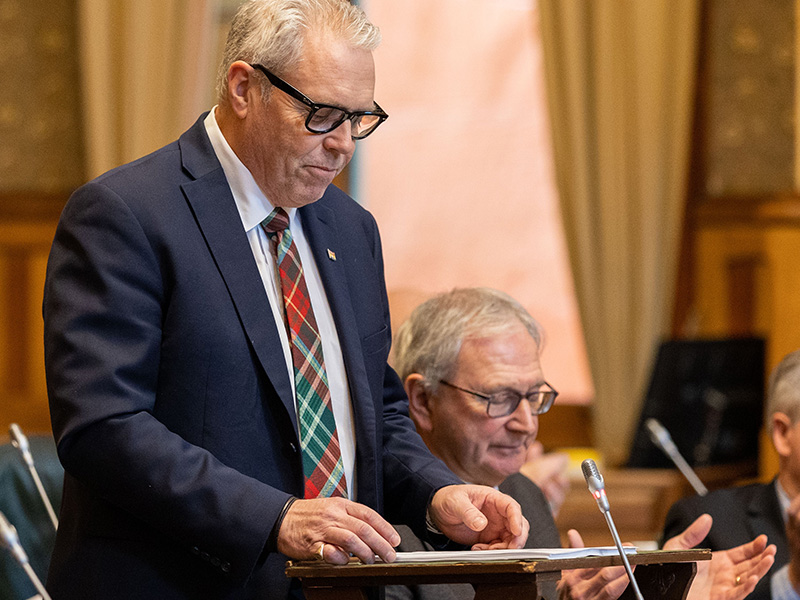
The New Brunswick government tabled a $12.2-billion budget Tuesday that forecasts a small surplus and promises a funding boost to help stabilize the ailing health-care sector.
Finance Minister Ernie Steeves said the province is operating in a volatile economic environment where rapidly rising prices are putting pressure on household budgets and increasing costs for businesses.
“Our government is proud of how we’ve been responsible with taxpayers’ money, while finding that important balance with spending on priorities including health care, education, and absolutely supporting our most vulnerable,” he told a news conference before tabling the budget in the legislature.
The 2023-24 budget provides for a $40.3-million surplus on total revenues of $12.19 billion and expenditures of $12.15 billion.
The government posted a record surplus of $862.2 million for the 2022-23 fiscal year after projecting a surplus of just $35 million in the budget tabled a year ago.
Steeves justified last year’s large surplus, saying the government “ran into some oddities,” which included about $433 million in unexpected income tax revenue and transfers from earlier years.
“These are happening at a different pace in New Brunswick now,” he said. “You can’t count on things staying status quo. It’s a different time. Predicting is very hard.”
The budget provides $3.6 billion for the health-care sector, an increase of 10.6% from last year, which comes with about $250 million in federal assistance.
“We are looking to transform health,” Steeves said.
“Budgets are about tough decision decisions being made. And we’re looking for a health-care system that is punching beyond its weight, I guess.”
The budget includes $10.4 million for increasing the number of doctors “working in teams” and $29.7 million to address recruitment and retention challenges.
The finance minister noted the province has moved from a struggling economy to one dealing with challenges that come with growth.
The province’s population topped 800,000 last year, adding more than 40,000 people over the previous five years through immigration and arrivals from other parts of Canada. School enrolment has increased by about 4,200 and is expected to rise by another 2,200 students next year.
In response, the government has set aside an additional $33.3 million to pay for teachers and classroom materials that come with the increase in number of students.
While there is no rent cap in the budget this year to help tenants or newcomers, Steeves said the government will give $1 million toward a new IT system for the residential tenancies tribunal. Steeves said the government is helping alleviate the housing crunch with the building of new properties and by encouraging private developers to build.
“We are also helping them with the rent tribunal,” he said. “We don’t want anybody taken advantage of. [But] in order to keep the business growing, and the housing industry growing, we thought a rent cap was counterproductive.”